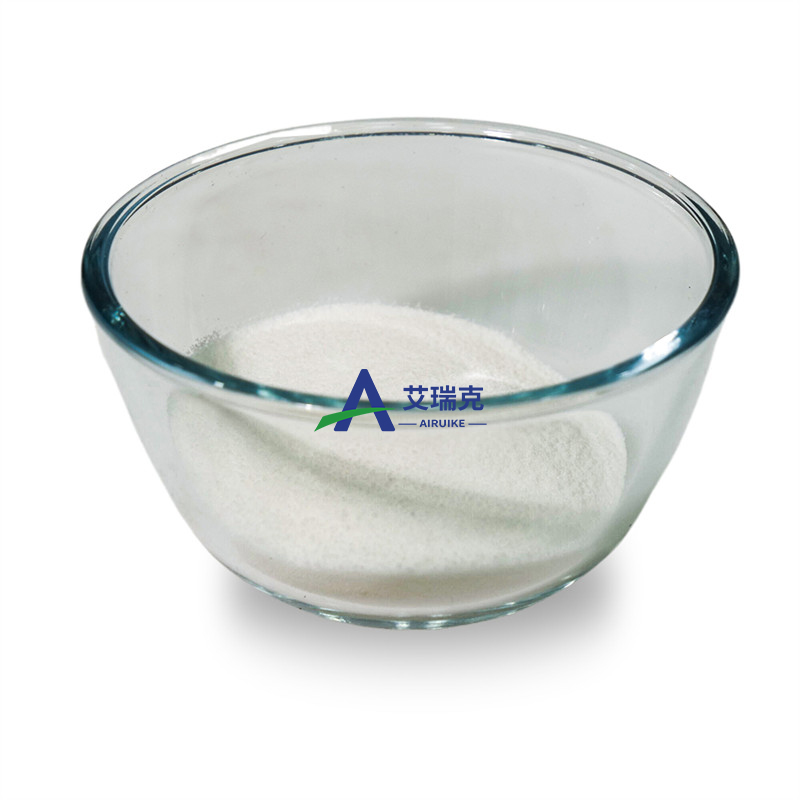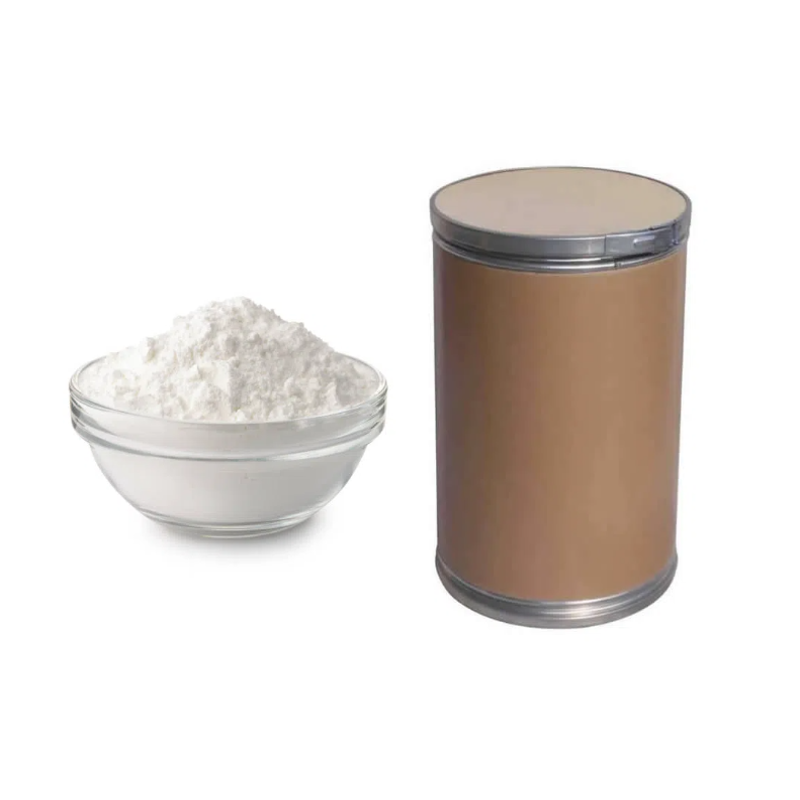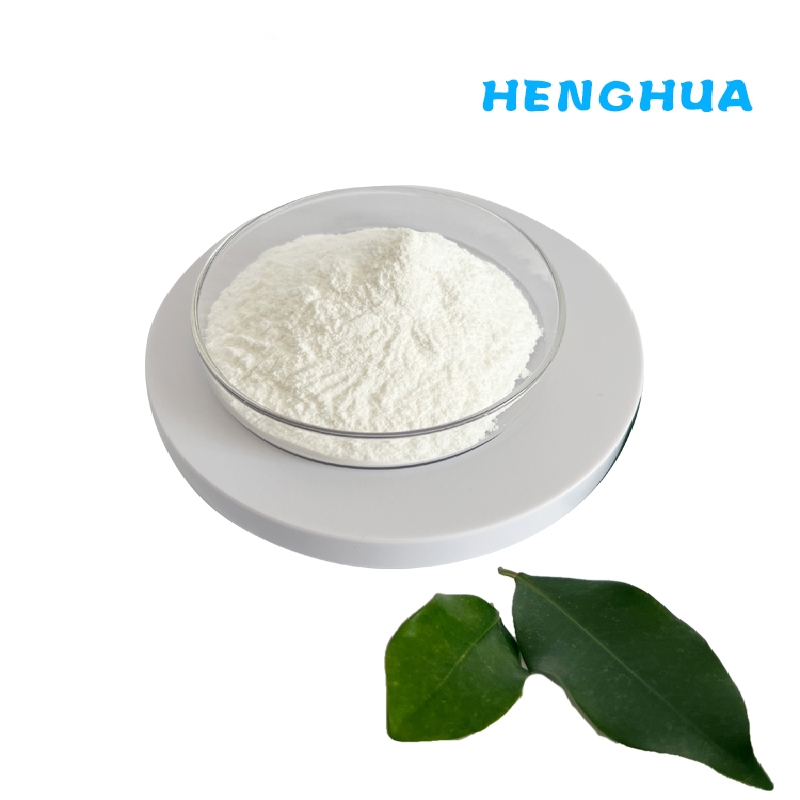-
Categories
-
Pharmaceutical Intermediates
-
Active Pharmaceutical Ingredients
-
Food Additives
- Industrial Coatings
- Agrochemicals
- Dyes and Pigments
- Surfactant
- Flavors and Fragrances
- Chemical Reagents
- Catalyst and Auxiliary
- Natural Products
- Inorganic Chemistry
-
Organic Chemistry
-
Biochemical Engineering
- Analytical Chemistry
-
Cosmetic Ingredient
- Water Treatment Chemical
-
Pharmaceutical Intermediates
Promotion
ECHEMI Mall
Wholesale
Weekly Price
Exhibition
News
-
Trade Service
▎Constipation in the content team editor of WuXi AppTec is a common clinical symptom.
Almost everyone of us has had similar experiences
.
In the eyes of many people, constipation is not a disease without worrying too much, especially if it is intermittent
.
The case I want to share today is about a middle-aged and elderly patient who came to the hospital for treatment because of long-term constipation
.
After the consultation, the doctor performed a rectal examination and further found that the patient had rectal ulcers
.
Is irregular rectal ulcer really caused by long-term constipation? Is palpation of suspected rectal lesions due to tumors or other diseases? A team of experts from the Department of Dermatology and Surgery of Zhongshan Hospital Affiliated to Fudan University recorded the patient's diagnosis and treatment process.
The case report was published in the British Medical Journal (BMJ).
The corresponding author of the article is Professor Wang Qiang from the Department of Dermatology, Zhongshan Hospital Affiliated to Fudan University
.
Screenshot source: BMJ patient male, over 50 years old
.
Because of suspected rectal disease after rectal examination, he was referred to the current hospital for treatment by a general practitioner
.
According to the patient, intermittent constipation occurred in the past five years, but there was no pain in the rectum; in the past three years, he had received regular enema once a week for simple care, but it still could not effectively relieve the constipation
.
History of drug allergy: past penicillin intolerance
.
Sexual life history: unknown
.
Physical examination after admission: digital rectal examination showed a non-tender rectal lesion with a diameter of about 3 cm on the left side of the rectum; the base was smooth, slightly raised, and the border was indurated
.
Laboratory examination: Treponema pallidum particle agglutination test and toluidine red unheated serum test were both positive (as shown in the figure below), and the other tumor screening results were negative
.
Toluidine red unheated serum test (TRUST) is a non-Treponema pallidum antigen serum test
.
Both TRUST and Treponema pallidum particle agglutination test are mainly used for screening and curative effect observation of syphilis
.
▲ Relevant laboratory test results (screenshot source: Reference [1]; Translation: New Medical Perspective) MRI: shows irregular low rectal wall thickening (about 4 cm in diameter), infringement of the left mesorectal fascia, intestine There are multiple swollen lymph nodes in the week and the front of the sacrum
.
Colonoscopy: irregular rectal ulcer, fibrinous surface, obvious mucosal friability, about 1.
5 cm in diameter (black arrow)
.
Rectal biopsy did not find tumor cells, but there were a large number of external lymphocytes and many mature plasma cells inflammatory infiltration
.
▲ Colonoscopy showed irregular rectal ulcers, about 1.
5 cm in diameter (black arrow); fibrous surface and obvious mucosal fragility
.
(Screenshot source: Reference [1]) The diagnosis was confirmed by toluidine red unheated serological test and Treponema pallidum particle agglutination test, and the patient was diagnosed with Syphilitic chancre of the rectum
.
Syphilis chancre appears after an incubation period of 9 to 90 days at the site of syphilis exposure.
Chancre is usually seen in the genitals, but it can also be seen in the anus, rectum, oral cavity, or hands
.
Rectal chancre is usually asymptomatic, but in some people it may cause mild rectal pain or discomfort, constipation, rectal bleeding, and occasionally rectal discharge
.
Treatment and follow-up intravenous ceftriaxone (2 g daily) was treated for two weeks
.
One day after the initial treatment, the follow-up toluidine red unheated serological test titer increased to 1:8, indicating a poor response to the initial treatment; and magnetic resonance imaging showed that there were still irregular low rectal wall thickening and swelling The lymph nodes are dead
.
Subsequently, the patient was given oral doxycycline hydrochloride (0.
2 g per day) for 30 consecutive days
.
23 days after the second treatment, the titer of the follow-up toluidine red unheated serological test dropped to 1:1; follow-up colonoscopy showed that there was keloid formation in the rectal lesions
.
Nine months after the second treatment, the follow-up toluidine red unheated serological test was negative
.
The treatment failed to relieve the patient’s constipation.
Although constipation can be accompanied by chancre, the patient’s chronic constipation may not be relevant to the diagnosis
.
Differential diagnosis of primary chancre: usually self-healing within 3-10 weeks, leaving a slight induration scar
.
Rectal ulcer: The differential diagnosis is extensive, and the most common diseases excluded during the preliminary study were benign tumors, melanomas, carcinoids, and adenocarcinomas
.
Drugs that can cause rectal ulcers include: lincomycin, 5-fluorouracil, certain oral contraceptives, and aminophylline suppositories; other causes of infection include herpes simplex virus and HIV
.
In this case, the above diagnosis was ruled out through magnetic resonance imaging, endoscopic biopsy, medication history, and laboratory tests
.
If an accurate sex life history is not available, diagnosis may become more difficult
.
Learning Points Try to conduct a comprehensive medical history collection of patients suspected of having rectal disease, including accurate sexual life history and medication history
.
Related reading Recurring erythema and blisters on the buttocks during menstruation is actually the reason! | The BMJ case of the Pediatric Research Institute of the Medical Academy of pregnant women suffered from buttock pain after gas poisoning, which turned out to be rhabdomyolysis! | The BMJ case always blushes after taking a bath? West China Hospital "The Lancet" published a case: Zheng Dayi Affiliated Hospital "The Lancet" published a case: fever of unknown origin, gene sequencing confirmed infection of NEJM of the Third Hospital of Beijing Medical University published case: itchy eyelid in children was actually infected with lice! The woman had abdominal pain for two years, but her spleen grew out of her pelvis? The Zhejiang Provincial People’s Hospital team NEJM published a case where a fish cut the thumb, which resulted in bacterial infection and long nodular ulcers in both arms | NEJM case reference materials[1] Qiang Wang, Ji-Na Zheng, Jian-Min Xu, Yun-Shi Zhong.
(2021) .
An irregular ulcer in the rectum, BMJ; 372:n316 Note: This article aims to introduce the progress of medical and health research, not a treatment plan recommendation
.
If you need guidance on the treatment plan, please go to a regular hospital for treatment
.
Almost everyone of us has had similar experiences
.
In the eyes of many people, constipation is not a disease without worrying too much, especially if it is intermittent
.
The case I want to share today is about a middle-aged and elderly patient who came to the hospital for treatment because of long-term constipation
.
After the consultation, the doctor performed a rectal examination and further found that the patient had rectal ulcers
.
Is irregular rectal ulcer really caused by long-term constipation? Is palpation of suspected rectal lesions due to tumors or other diseases? A team of experts from the Department of Dermatology and Surgery of Zhongshan Hospital Affiliated to Fudan University recorded the patient's diagnosis and treatment process.
The case report was published in the British Medical Journal (BMJ).
The corresponding author of the article is Professor Wang Qiang from the Department of Dermatology, Zhongshan Hospital Affiliated to Fudan University
.
Screenshot source: BMJ patient male, over 50 years old
.
Because of suspected rectal disease after rectal examination, he was referred to the current hospital for treatment by a general practitioner
.
According to the patient, intermittent constipation occurred in the past five years, but there was no pain in the rectum; in the past three years, he had received regular enema once a week for simple care, but it still could not effectively relieve the constipation
.
History of drug allergy: past penicillin intolerance
.
Sexual life history: unknown
.
Physical examination after admission: digital rectal examination showed a non-tender rectal lesion with a diameter of about 3 cm on the left side of the rectum; the base was smooth, slightly raised, and the border was indurated
.
Laboratory examination: Treponema pallidum particle agglutination test and toluidine red unheated serum test were both positive (as shown in the figure below), and the other tumor screening results were negative
.
Toluidine red unheated serum test (TRUST) is a non-Treponema pallidum antigen serum test
.
Both TRUST and Treponema pallidum particle agglutination test are mainly used for screening and curative effect observation of syphilis
.
▲ Relevant laboratory test results (screenshot source: Reference [1]; Translation: New Medical Perspective) MRI: shows irregular low rectal wall thickening (about 4 cm in diameter), infringement of the left mesorectal fascia, intestine There are multiple swollen lymph nodes in the week and the front of the sacrum
.
Colonoscopy: irregular rectal ulcer, fibrinous surface, obvious mucosal friability, about 1.
5 cm in diameter (black arrow)
.
Rectal biopsy did not find tumor cells, but there were a large number of external lymphocytes and many mature plasma cells inflammatory infiltration
.
▲ Colonoscopy showed irregular rectal ulcers, about 1.
5 cm in diameter (black arrow); fibrous surface and obvious mucosal fragility
.
(Screenshot source: Reference [1]) The diagnosis was confirmed by toluidine red unheated serological test and Treponema pallidum particle agglutination test, and the patient was diagnosed with Syphilitic chancre of the rectum
.
Syphilis chancre appears after an incubation period of 9 to 90 days at the site of syphilis exposure.
Chancre is usually seen in the genitals, but it can also be seen in the anus, rectum, oral cavity, or hands
.
Rectal chancre is usually asymptomatic, but in some people it may cause mild rectal pain or discomfort, constipation, rectal bleeding, and occasionally rectal discharge
.
Treatment and follow-up intravenous ceftriaxone (2 g daily) was treated for two weeks
.
One day after the initial treatment, the follow-up toluidine red unheated serological test titer increased to 1:8, indicating a poor response to the initial treatment; and magnetic resonance imaging showed that there were still irregular low rectal wall thickening and swelling The lymph nodes are dead
.
Subsequently, the patient was given oral doxycycline hydrochloride (0.
2 g per day) for 30 consecutive days
.
23 days after the second treatment, the titer of the follow-up toluidine red unheated serological test dropped to 1:1; follow-up colonoscopy showed that there was keloid formation in the rectal lesions
.
Nine months after the second treatment, the follow-up toluidine red unheated serological test was negative
.
The treatment failed to relieve the patient’s constipation.
Although constipation can be accompanied by chancre, the patient’s chronic constipation may not be relevant to the diagnosis
.
Differential diagnosis of primary chancre: usually self-healing within 3-10 weeks, leaving a slight induration scar
.
Rectal ulcer: The differential diagnosis is extensive, and the most common diseases excluded during the preliminary study were benign tumors, melanomas, carcinoids, and adenocarcinomas
.
Drugs that can cause rectal ulcers include: lincomycin, 5-fluorouracil, certain oral contraceptives, and aminophylline suppositories; other causes of infection include herpes simplex virus and HIV
.
In this case, the above diagnosis was ruled out through magnetic resonance imaging, endoscopic biopsy, medication history, and laboratory tests
.
If an accurate sex life history is not available, diagnosis may become more difficult
.
Learning Points Try to conduct a comprehensive medical history collection of patients suspected of having rectal disease, including accurate sexual life history and medication history
.
Related reading Recurring erythema and blisters on the buttocks during menstruation is actually the reason! | The BMJ case of the Pediatric Research Institute of the Medical Academy of pregnant women suffered from buttock pain after gas poisoning, which turned out to be rhabdomyolysis! | The BMJ case always blushes after taking a bath? West China Hospital "The Lancet" published a case: Zheng Dayi Affiliated Hospital "The Lancet" published a case: fever of unknown origin, gene sequencing confirmed infection of NEJM of the Third Hospital of Beijing Medical University published case: itchy eyelid in children was actually infected with lice! The woman had abdominal pain for two years, but her spleen grew out of her pelvis? The Zhejiang Provincial People’s Hospital team NEJM published a case where a fish cut the thumb, which resulted in bacterial infection and long nodular ulcers in both arms | NEJM case reference materials[1] Qiang Wang, Ji-Na Zheng, Jian-Min Xu, Yun-Shi Zhong.
(2021) .
An irregular ulcer in the rectum, BMJ; 372:n316 Note: This article aims to introduce the progress of medical and health research, not a treatment plan recommendation
.
If you need guidance on the treatment plan, please go to a regular hospital for treatment
.







